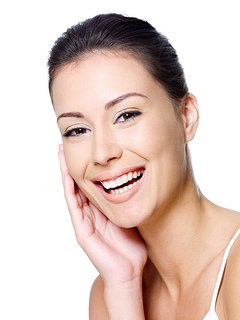May 1st, 2024

Summer is almost here, which means a season full of vacations, adventures and great memories is just around the corner for our patients at Hier & Palmer Orthodontics.
Everyone wants a glowing and radiant white smile when the sun comes around and we have a few reminders to keep your pearly whites healthy and beautiful over the summer! Try to stay away from drinks that will stain your teeth like coffee, soft drinks, or dark colored juices. Not only will drinks like this weaken your enamel but they will also darken that fabulous smile you're working on! Another tip is to try and focus on brushing your teeth; everyone knows that when busy schedules start picking up, getting a good brushing session in tends to take the backseat! A good tip for keeping your mouth safe from staining and other possible pitfalls is to rinse your mouth with water after any meal you can’t fully brush your teeth after. Your teeth, inside and out, will benefit!
And remember, whether you are headed to a barbecue, a camping trip, or just having fun in the backyard this summer, we want to hear all about it! Make sure to let us know what you’re up to below or on our Facebook page! We also encourage you to post any photos from your adventures!
April 24th, 2024

Invisalign, which we happily provide at Hier & Palmer Orthodontics, is a great alternative to traditional orthodontic treatment if you've been apprehensive about the thought of metal braces. During your initial visit, the first thing we do is take an impression of your teeth as they are now and digitize it. Using special software, we look at the current positioning of your teeth and compare it to the way your teeth should look.
Invisalign treatment, which consists of a series of aligners that you switch out approximately every couple of weeks, can help patients with crowded teeth, crossbites, overbites, underbites and more. Invisalign gradually shifts your teeth into place, creating the dazzling smile you’ve always wanted. During treatment with Drs. Lawrence Hier and Michelle Palmer, patients wear the aligners all day and night, except for during meals and when they’re brushing and flossing; cleaning your teeth and eating are a snap since you can easily remove your aligners! And because they’re clear, no one will know that your teeth are steadily straightening!
To find out if you are the right candidate for Invisalign treatment, we invite you to give us a call at our convenient Boynton Beach, FL office and schedule a consultation.
April 17th, 2024

During the early days of the environmental awareness movement, those who demonstrated against pollution, toxic chemicals, and the general public health were known as hippies. The early 1970s were a time of change, and assertions that we needed to pay more attention to the Earth's atmosphere were generally dismissed. But within a couple decades, it had become clear that the previous generation was right; the citizens of the world needed to become more environmentally conscious.
Many people feel that they can't make a difference if they don't do something big. But caring for the environment doesn't have to be an all-or-nothing concept. In fact, the little things you do can add up to make a great impact, especially in our community. Here are a few ways you can help the environment on Earth Day, April 22nd and all year around.
Four Small Ways to be Environmentally Friendly
- Recycle Your Textiles. Nearly 21 million tons of textiles are added to American landfills each year, according to the Environmental Protection Agency. Donating your unwanted clothing to a secondhand store or an organization that repurposes fabric helps cut down on solid waste and conserves natural resources.
- Reduce Usage of Disposables. Plastic bottles and bags, disposable diapers and other things we can use and toss out are convenient, but they're not necessary. Simply choosing to replace one of type of disposable with a reusable product can help you cut down on waste that has a large negative impact on our environment.
- Conserve Water. If everyone in the United States turned off the water while brushing their teeth, more than 1.5 million gallons of water could be conserved. Turn the water on long enough to wet your toothbrush for brushing and rinsing, and then immediately turn the water off again.
- Turn Off the Lights. Flip the light switch to "Off" if you're going to leave a particular room for 15 minutes or more. This will conserve energy on incandescent light bulbs and cut down on cooling costs.
It's not necessary to be an activist or install solar panels all over your home to help the environment. Although you can do these things, the little everyday measures make a big difference in helping to conserve energy and the environment, while reducing your carbon footprint. Our team at Hier & Palmer Orthodontics wants to remind you to celebrate Earth Day and help the environment, knowing that it will benefit your and your children's generation.
April 10th, 2024

We know that being a teen is hard, and we know that adding braces to the mix can often elicit a less-than-enthusiastic response. Luckily, teens can now have straighter teeth without the hassle, discomfort, and embarrassment of metal braces!
Drs. Lawrence Hier and Michelle Palmer proudly offer Invisalign Teen clear aligners to our adolescent patients.
One of the main benefits of Invisalign Teen aligners is that they are virtually invisible. They are also removable, which means teen patients are free to eat anything they choose. The aligners are also easily replaceable, should they ever get lost! The best part? They make it easy to keep up with a healthy brushing and flossing routine.
The aligners are made from a lightweight, plastic material that fits precisely on the teeth. Invisalign Teen treatment has become a popular treatment here at Boynton Beach, FL because it helps our younger patients achieve a straight, beautiful smile without undergoing the dreaded metal-mouth.
For more information on Invisalign Teen clear aligners, please feel free to give us a call at our Drs. Lawrence Hier and Michelle Palmer office today!





 Website Powered by Sesame 24-7™
Website Powered by Sesame 24-7™